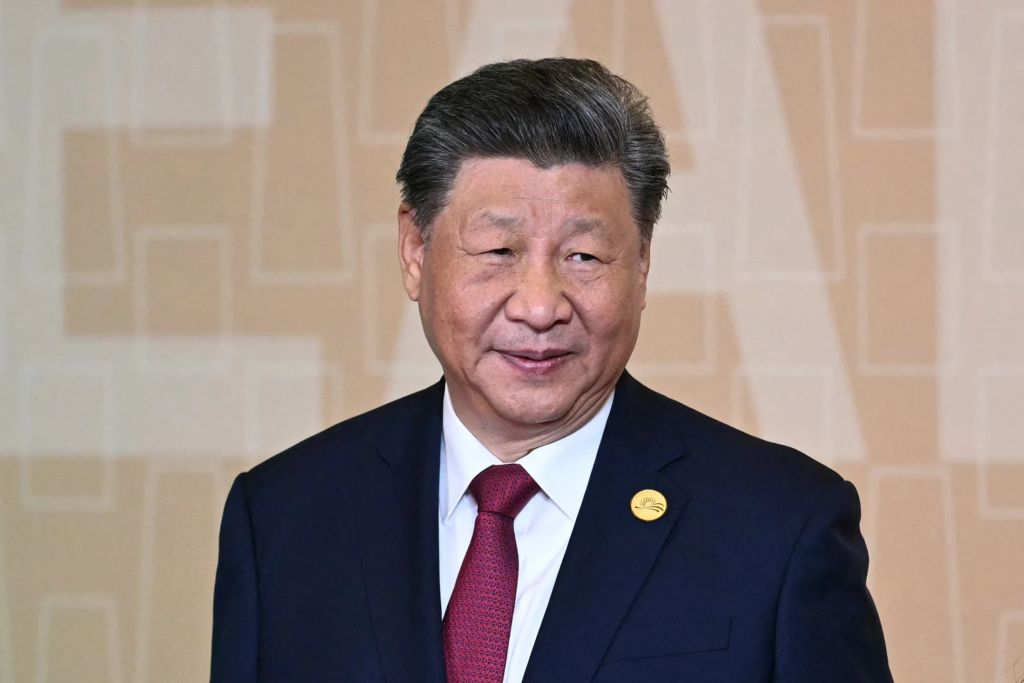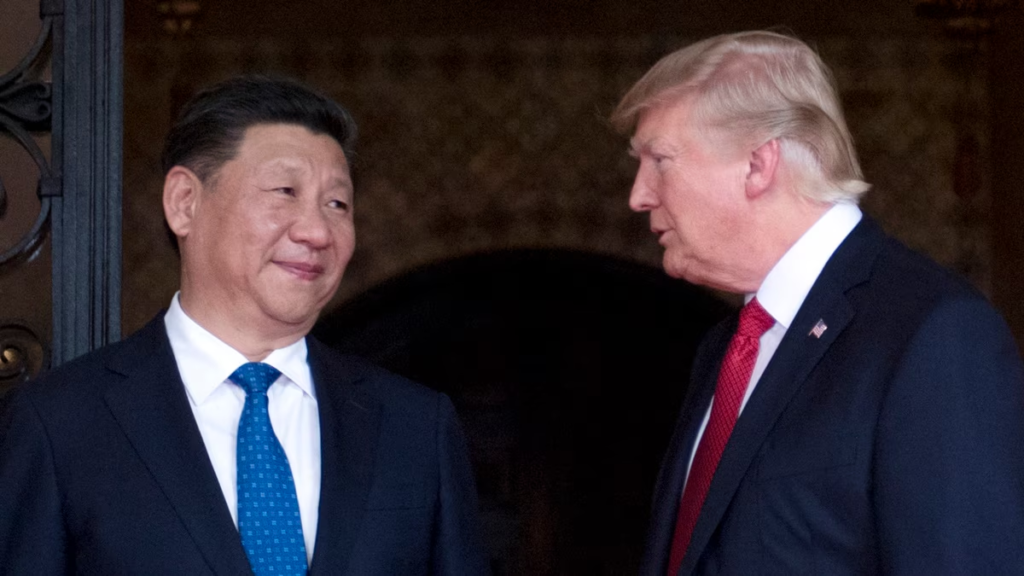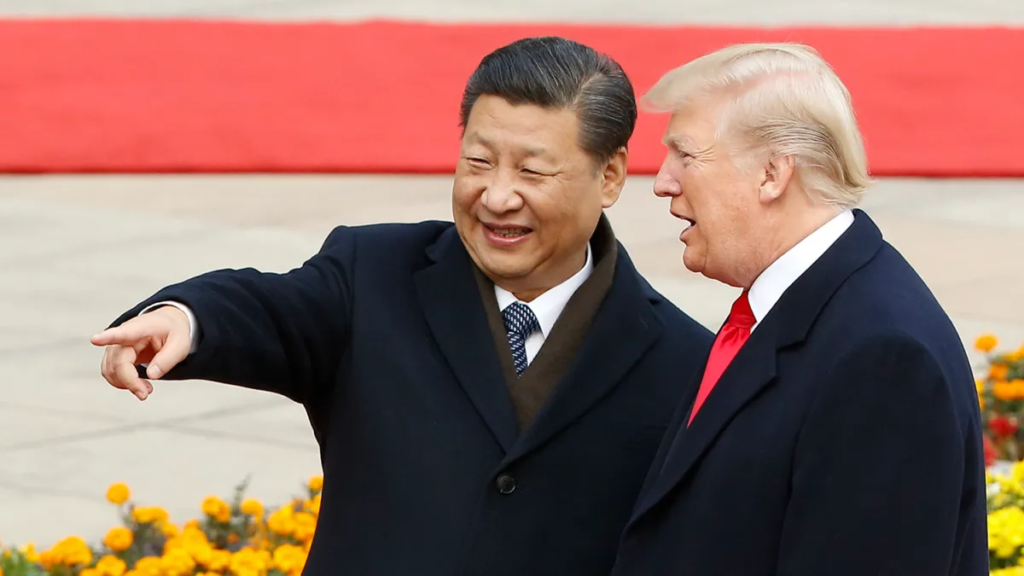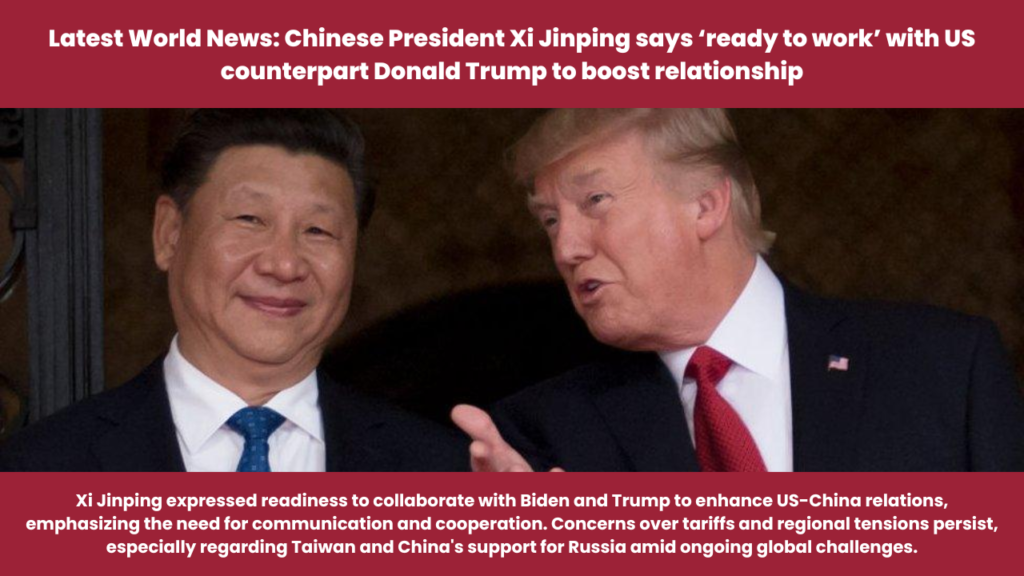Chinese leader Xi Jinping told US President Joe Biden that he’s ready to work with Donald Trump to improve the relationship between the world’s biggest economies.

Speaking in their final meeting before Trump takes office, Xi told Biden that the US and China shouldn’t pursue decoupling and instead strive for peaceful existence over the long term.
“China is ready to work with the new US administration to maintain communication, expand cooperation and manage differences, so as to strive for a steady transition of the China-US relationship for the benefit of the two peoples,” Xi said through a translator at the meeting in Lima, Peru.
“Only solidarity and cooperation can help humanity overcome current difficulties,” Xi added. “In an age of flourishing sci-tech revolution, neither decoupling nor supply chain disruption is a solution.”
Biden, speaking in response, said he was “very proud” of the progress between the two sides.

“These conversations prevent miscalculations and they ensure the competition between our two countries will not veer into conflict,” the US leader said.
The meeting is expected to be the last official gathering between the pair, whose relationship stretches back more than a decade to when both served as vice president for their nations, and comes at a period of heightened uncertainty and tension.
Biden has just about two months before he hands power to Trump, who has threatened 60% tariffs on China — a level that risks decimating trade between the world’s biggest economies. Early appointments by the president-elect — including China hawks Marco Rubio as secretary of state and Mike Waltz as national security advisor — suggest he is readying an adversarial stance toward Beijing.
Biden and Xi have sought to stabilize relations and build on a summit a year ago in San Francisco, which reset ties after his administration shot down a Chinese spy balloon drifting over the continental US and former House Speaker Nancy Pelosi visited Taiwan, prompting Beijing to hold military exercises surrounding the island. Taiwan remains the biggest military flashpoint between the US and China, and the most sensitive issue for Xi.

Still, a host of tensions remain following a tumultuous four years that saw both nations take steps to become more self-reliant in preparation for a potential conflict, even if one isn’t inevitable or planned. The Biden administration has moved to deny Beijing advanced AI chips and other technology, pressuring US allies to comply with export controls designed to ensure the US maintains its military superiority over China.
Ahead of the meeting, a senior US official said Biden was expected to warn Xi that attacks against critical US networks would only lead to further decoupling from Chinese-origin technology. China’s state-sponsored hack of US telecommunications systems — an effort to steal call records and communications from US political candidates and aides, including those from Trump and Vice President Kamala Harris’ campaigns — extended to T-Mobile US Inc., the Wall Street Journal reported Saturday. China has denied any effort to interfere in US politics.

More broadly, Biden aides described Saturday’s meeting as a chance to check in on areas of concern. High on the list is China’s support for Russia’s defense industrial base, which has helped Vladimir Putin sustain his war in Ukraine. On Friday, Biden met with the leaders of Japan and South Korea to discuss their concerns over growing regional support for Russia, including North Korea’s recent deployment of troops to help Russia’s war effort.
The strengthening alliance between Putin and Kim Jong Un is becoming a headache for Xi. Although he’s supported both Russia and North Korea, Xi has sought to portray Beijing as neutral regarding the war in Ukraine and pushed to improve ties with the US and its allies, not least to help ensure exports continue to buoy China’s struggling economy. The Kim-Putin partnership risks adding economic pressure on China, and it undermines Xi’s argument that the US shouldn’t have military alliances in the Indo-Pacific region.
Biden’s team is also eager to avoid conflicts erupting in the South China Sea or between China and Taiwain, which White House National Security Advisor Jake Sullivan as the biggest risk for the incoming administration.
“That would be catastrophic for everyone involved: for Taiwan, for Beijing, for us, for the world,” Sullivan on Thursday. “I wouldn’t necessarily say, given how we have managed cross-strait relations, that that should be something that is at heightened risk in 2025, but because of the size of the risk, even if it’s not that likely, it’s something that has to be at the top of the agenda.”

For Xi, the meeting is also an opportunity to take stock of the relationship as he considers how to brace his country for a possible tariff shock when Trump returns to the White House. China’s manufacturing push has helped drive export growth to the fastest in two years, buoying an economy struggling with a prolonged real estate slump and deflation.
While China saw some pick up in domestic demand in October after rolling stimulus measures, massive tariffs risk shaving off several percentage points off annual economic growth. Xi on Friday expressed “full confidence” in hitting this year’s target of about 5%.

With that threat looming, Xi has spent much of the APEC summit positioning China as a more reliable free trade partner. He held meetings with a range of US allies and partners and inaugurated a new $1.3 billion deep-water port in Peru, while calling on APEC leaders to “tear down the walls” impeding trade, investment, technology and services.
Xi also announced that he would host the APEC summit in 2026, which would be an opportunity for Trump to potentially visit China.


